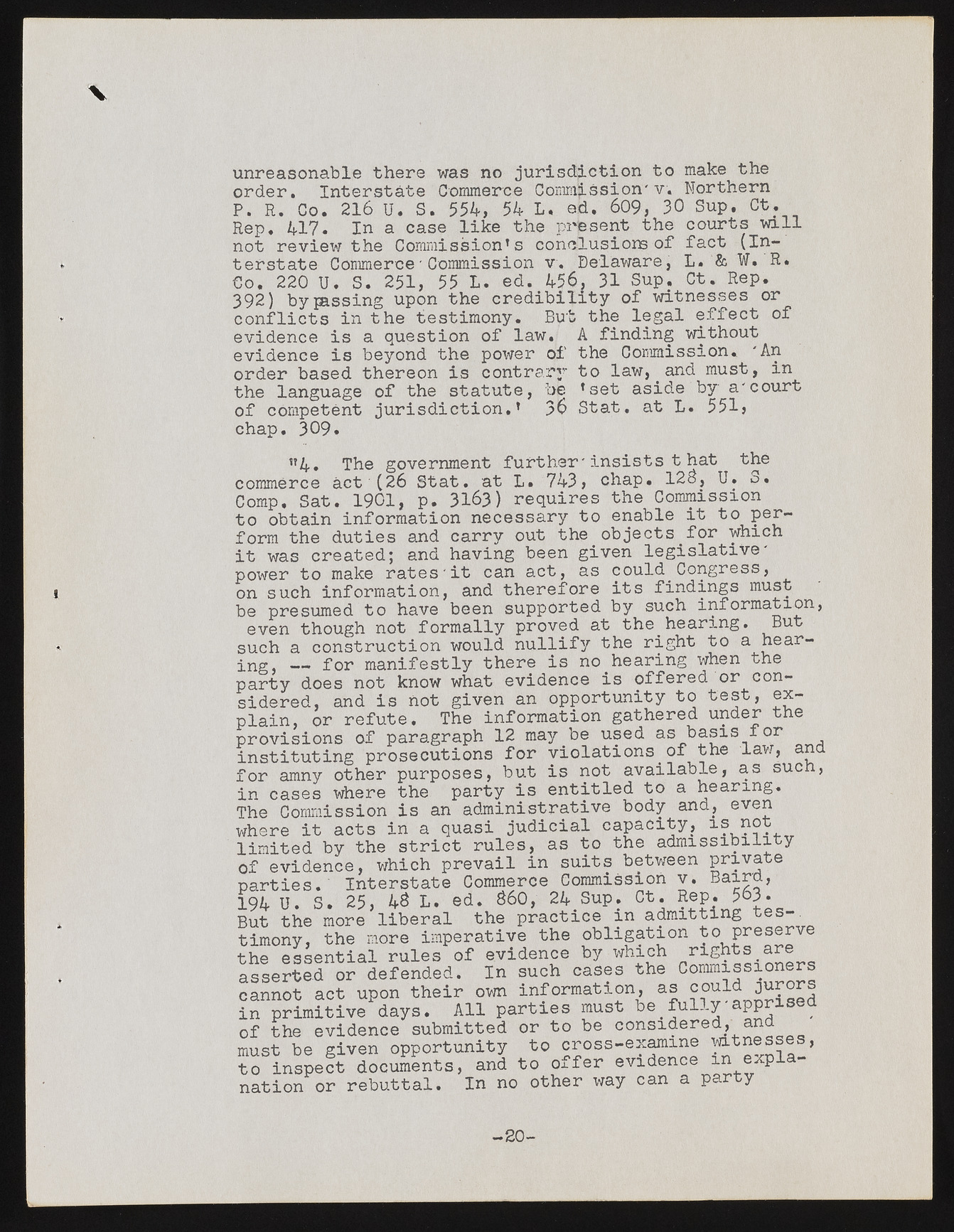Copyright & Fair-use Agreement
UNLV Special Collections provides copies of materials to facilitate private study, scholarship, or research. Material not in the public domain may be used according to fair use of copyrighted materials as defined by copyright law. Please cite us.
Please note that UNLV may not own the copyright to these materials and cannot provide permission to publish or distribute materials when UNLV is not the copyright holder. The user is solely responsible for determining the copyright status of materials and obtaining permission to use material from the copyright holder and for determining whether any permissions relating to any other rights are necessary for the intended use, and for obtaining all required permissions beyond that allowed by fair use.
Read more about our reproduction and use policy.
I agree.Information
Digital ID
Permalink
Details
Member of
More Info
Rights
Digital Provenance
Publisher
Transcription
V unreasonable there was no jurisdiction to make the order. Interstate Commerce Commission' v. Northern P. R. Co. 216 U. S. 554, 54 L. ed. 609, 30 Sup. Ct. Rep. 417. In a case like the present the courts will not review the Commission’s conclusions of fact (Interstate Commerce-Commission v. Delaware, L. & W. R* Co. 220 U. S. 251, 55 L. ed. 456, 31 Sup. Ct. Rep. 392) bypassing upon the credibility of witnesses or conflicts in the testimony. But the legal effect of evidence is a question of law. A finding without evidence is beyond the power of the Commission. 'An order based thereon is contrary to law,^and must, in the language of the statute, be ’set aside by a'court of competent jurisdiction.’ 36 Stat. at L. 551, chap. 309* ”4. The government further'insists that the commerce act (26 Stat. at L. 743, chap. 128, U. S. Comp, Sat. 1901, p. 3163) requires the Commission to obtain information necessary to enable it to per- form the duties and carry out the objects for which it was created; and having been given legislative' power to make rates'it can act, as could Congress, on such information, and therefore its findings must be presumed to have been supported by such information, even though not formally proved at the hearing. But such a construction would nullify the right to a hearing, — for manifestly there is no hearing when the party does not know what evidence is offered or considered, and is not given an opportunity to test, explain, or refute. The information gathered under the provisions of paragraph 12 may be used as basis for instituting prosecutions for violations of the law, and for amny other purposes, but is not available, as such, in cases where the party is entitled to a hearing. The Commission is an administrative body and, even where it acts in a quasi judicial capacity, is not limited by the strict rules, as to the admissibility s-P .1J. OCU U V Uiiv u WJ. ------------- 7 . evidence, which prevail in suits between private _9 . . . n_________is _ n A /-wS tr Hon V'm _ parties.’ Interstate Commerce Commission v. Baird, ? U. S. 25, 48 I. ed. 860, 24,Sup. Ct. Rep. 56|. But the more liberal the practice m admitting tes-. timony, the more imperative the obligation to preserve the essential rules of evidence by which rights are asserted or defended. In such cases the Commissioners cannot act upon their own information, as could in primitive days. All parties must be fully apprised of the evidence submitted or to be considered, and must be given opportunity to cross-examine witnesses, to inspect documents, and to offer evidence m explanation or rebuttal. In no other way can a party -20-

